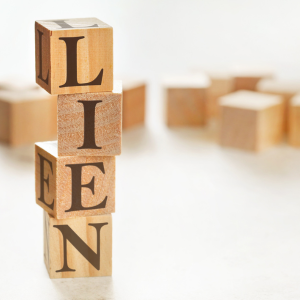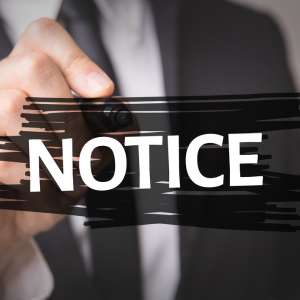
Addressing delinquent HOA dues in Illinois requires understanding local laws and solutions for communities like Chicago, Aurora, and Springfield. A Team Real Estate Solutions offers expert guidance to manage outstanding dues effectively.
Understanding Delinquent HOA Dues in Illinois: A Comprehensive Guide
Defining Delinquency: How Illinois Law Defines Unpaid HOA Dues
In Illinois, homeowners associations (HOAs) play a critical role in managing shared spaces and enforcing community rules. When property owners do not pay their assessments or fees on time, their dues become delinquent. According to Illinois law, a payment is deemed unpaid if it goes past the deadline set by the HOA’s governing documents, like declarations or bylaws. These documents specify what counts as delinquency, including grace periods and penalties for late payments. Property owners should review these regulations to understand their responsibilities and avoid disputes.
Initial Collection Steps: What Happens When HOA Dues Go Unpaid?
When HOA dues are unpaid in Illinois, the homeowners association takes specific steps to handle the delinquency. Typically, the management sends a notice to the property owner who is behind on payments, detailing the amount owed, the original due date, and any late charges. This notice acts as a formal reminder, giving the owner a chance to settle their account. Some homeowners may wonder if they can opt out of HOA obligations to avoid ongoing dues, but doing so is rarely permitted once the property is bound by HOA rules. If the dues remain unpaid, further collection efforts may follow, including more notices and attempts to resolve the issue before legal measures are taken. Effective communication between the HOA and property owners is key at this stage to prevent escalation.
Common Collection Methods: Strategies Used by Illinois HOAs
There are a few legal ways for Illinois homeowners associations to collect past-due fees. Some common ways are:
- Payment Plans: Setting up structured payment plans to help property owners pay off their overdue amounts.
- Legal Notices: Sending demand letters that explain what could happen if you don’t pay, which could include legal action.
- Lien Placement: Filing a lien against the delinquent property as a legal claim until the dues are settled.
- Collections Agency: Hiring third-party agencies to assist in recovering outstanding balances.
HOAs must ensure that all collection methods adhere to state laws to protect both the association and community members. While enforcing dues, they should also aim to resolve issues cooperatively whenever possible.
Get in touch with A Team Real Estate Solutions for more information or help with Illinois condo and HOA rules.
Liens and Legal Action for Unpaid HOA Dues in Illinois
Lien Placement: Legal Requirements and Process in Illinois

In Illinois, there are specific steps that must be taken to put a lien on property for unpaid Homeowners Association (HOA) dues. These things must a HOA have:
- Send written notice to the homeowner about the unpaid dues.
- File the lien with the county recorder’s office where the property is located.
- Provide details such as the amount owed, property description, and lien duration.
Perhaps the lien won’t be valid if these steps aren’t taken. In order to make sure they are following Illinois laws, HOAs should talk to a lawyer.
Lien Consequences: Impact on Property Ownership and Credit
A lien for unpaid HOA dues can affect both property ownership and credit scores:
- Property Ownership: A lien can cloud the property’s title, making it difficult to sell.
- Credit Impact: It can also harm a homeowner’s credit report, which might affect their ability to get future loans.
In order to keep their finances in good shape and protect their property rights, homeowners should know about these effects.
Removing a Lien: Steps to Take to Clear a Lien on Your Property
To remove a lien from your property, consider these steps:
- Settle the Debt: Pay the outstanding balance owed to the HOA.
- Obtain a Lien Release: Request a lien release document from the HOA after settling the debt.
- Record the Release: File the lien release with the county recorder’s office to remove it from the property record.
Following this process can help restore the property’s marketability and improve credit.
Lawsuits for Delinquent Dues: What to Expect in Illinois Courts
If dues remain unpaid, an HOA may file a lawsuit in Illinois courts. Homeowners can expect:
- Legal action: the HOA will use court methods to get the back dues.
- Court Proceedings: Both parties present evidence, and a judge decides based on the information provided.
- Resolution: Outcomes may include payment plans, settlement agreements, or judgments for full payment.
Consulting an attorney can help homeowners navigate this process and seek favorable outcomes. At A Team Real Estate Solutions, we assist both homeowners and associations with these legal challenges. Contact us for a consultation to explore how we can address your needs.
Negotiating with Your HOA to Resolve Delinquent Dues
Effective Negotiation Strategies: Tips for Reaching a Settlement
It can be hard to get your Homeowners Association (HOA) to settle past-due fees, but it is possible if you know what you’re doing.
- Know Yourself: Look at your finances to see how much you can really give.
- Research: Familiarize yourself with the HOA’s policies on late payments and any legal precedents specific to Illinois.
- Communication: Maintain a positive attitude and open communication. Clearly and honestly explain your situation.
- Make a Plan: As proof that you are ready to solve the problem, make a simple payment plan or settlement offer.
These strategies can streamline the negotiation process and lead to a resolution that benefits all parties involved.
Preparation for Negotiations: Documents and Information to Gather

Before entering negotiations, it is crucial to gather relevant documents and information:
- Account Records: Access your account balance, payment history, and any past correspondence with the HOA.
- Property Documentation: Make sure you have all the papers that prove you own the property and the HOA agreements.
- Financial Statements: Gather proof of income and other financial documents to strengthen your negotiation position.
Being well-prepared supports your case and improves the chances of a favorable outcome.
Financial Hardship: Options for Homeowners Facing Difficulty
If a homeowner is having a hard time paying their HOA dues, they have a few options:
- Seek Assistance: Explore if your community has financial support programs available.
- Payment Plans: Request a payment plan from the HOA that fits your financial situation.
- Professional Guidance: Consider consulting a financial advisor for personalized advice.
Exploring these options can provide the relief needed to manage tough financial times effectively.
Payment Plans and Other Options: Looking into Ways to Deal with Past-Due Bills
For unpaid dues, consider the following payment plans and alternatives:
- Installment Plans: Propose spreading the arrears over a longer period with agreed-upon installments.
- Lump-Sum Settlement: If possible, negotiate a reduced lump-sum payment as a full settlement.
- Deferred Payment: Ask about deferring payments temporarily to give yourself time to recover financially.
These solutions offer flexibility and can help achieve an agreement without causing financial strain.
Each section above provides homeowners with practical tools and information to resolve issues with their HOA regarding delinquent dues. For further assistance, consider contacting A Team Real Estate Solutions for expert guidance.
Foreclosure and Other Legal Actions in Illinois
Foreclosure Process: Steps Involved in HOA Foreclosure in Illinois
Foreclosure is a serious legal action faced by homeowners in Illinois when they cannot pay their HOA fees. The process involves the following steps:

- Notice of Delinquency: Homeowners receive a notice about overdue payments.
- Demand Letter: If the issue persists, a demand letter follows, asking for payment by a set date.
- Legal Action: Without resolution, the HOA may file a lawsuit to begin foreclosure.
- Court Proceedings: The case goes to court for a judge to decide if the foreclosure is warranted under Illinois law.
- Auction: If the court sides with the HOA, the property may be auctioned to cover unpaid fees.
Knowing these steps helps homeowners manage this challenging situation more effectively.
Legal Costs: Understanding the Financial Implications of Legal Action
Legal actions, such as foreclosure, come with significant financial implications. Homeowners should understand potential costs, including:
- Attorney Fees: These vary depending on case complexity and the lawyer’s experience.
- Court Costs: These include filing fees and other related expenses.
- Additional Expenses: Costs may also involve appraisals and property maintenance during proceedings.
Awareness of these costs can help homeowners budget for legal disputes with an HOA in Illinois.
Homeowner Rights: Protecting Your Interests During Legal Proceedings
Homeowners in Illinois have rights during legal proceedings, which include:
- Access to Legal Aid: Seeking proper legal representation ensures fair treatment.
- Right to Defense: Homeowners can present evidence and arguments in court.
- Compliance and Protection: Meeting legal requirements safeguards homeowners’ interests.
Understanding these rights enables homeowners to effectively protect their properties and finances.
Eviction for Nonpayment: Understanding the Potential for Eviction
Eviction can occur if homeowners consistently fail to pay dues. Key points include:
- Legal Action: Nonpayment can lead to the HOA initiating legal action against the homeowner.
- Court Procedures: Evictions require court procedures where tenants can uphold their rights.
- Tenant Rights: Renters in Illinois have specific rights and protections during eviction, which the HOA must respect.
Understanding these processes is crucial for protecting living arrangements and avoiding unexpected evictions.
For professional guidance on real estate legal matters—and to learn how to sell your house fast in Maywood—get in touch with A Team Real Estate Solutions today.
Resources and Prevention of Delinquent HOA Dues
Government Assistance Programs: Exploring Available Financial Aid
Homeowners in Illinois struggling with their homeowners association (HOA) dues can look into various government assistance programs. These programs offer financial aid to support the community and assist homeowners in meeting their obligations. Options like the Illinois Hardest Hit Fund provide mortgage assistance, which can help manage additional expenses such as HOA dues. Homeowners should visit official Illinois government websites to find available resources and apply for suitable assistance.
Legal Assistance: Finding Legal Help and Advice in Illinois
Illinois homeowners who are behind on their HOA dues need to get legal help right away. Lawyers and attorneys who work with real estate can give you good help and represent you in court if you need to. Directories from places like the Illinois State Bar Association can help you find skilled lawyers in your area. Some neighborhood legal aid groups may help people who can’t pay for the services for free. Getting the right legal help can help you protect your homeowner rights and deal with tricky legal issues.
Community Resources: Support Networks for Homeowners
Community support networks are very important in Illinois for helping people whose HOA dues are past due. Associations and neighborhood groups in the area help people find resources and offer financial management classes and counseling. When you join a homeowner group, you get extra help and advice on how to keep your finances in good shape. Engaging with these organizations benefits individual homeowners and strengthens the wider community.
Preventing Future Delinquency: Strategies for Responsible HOA Payment
To avoid future delinquency in HOA dues, adopting responsible payment strategies is important for Illinois homeowners:
- Establish a Budget: Include HOA dues as a fixed expense in your budget, which helps prioritize payments.
- Plans for payments: If you’re having short-term money problems, talk to your HOA about plans for payments. To keep members from falling behind, many groups agree to requests.
- Automated Payments: Set up automatic payments to ensure timely monthly dues.
- Financial Management Education: Participate in educational programs on finance management and compliance with HOA rules to improve financial literacy.
- Communicating Often: Stay in touch with your HOA. Share any money problems you’re having and ask for help with how to handle your dues well.
By implementing these strategies, homeowners can remain in good standing with HOA agreements while supporting their community’s financial well-being. For tailored guidance, reach out to A Team Real Estate Solutions—we buy houses in Illinois and offer expert consultations to help you navigate your options.
FAQS:
What are the steps to manage delinquent HOA dues in Illinois?
In Illinois, collecting past-due HOA dues can include sending notices, charging late fees, and sometimes going to court. Legal professionals should be consulted to make sure that actions are in line with Illinois rules.
How can homeowners address delinquent HOA fees in Aurora?
Homeowners in Aurora with delinquent HOA fees should first reach out to their association for payment plan options or solutions. Understanding local regulations can help in compliance and financial planning.
What options exist for resolving outstanding dues in Springfield, IL?
In Springfield, the best way to settle past-due dues is to talk directly with the HOA. If talks don’t work out, court action may need to be taken. Keep up with the rules that govern homeowner associations in Illinois.
How do Illinois homeowners associations handle delinquent assessments?
Illinois HOAs often follow a structured process, including fines, liens, or legal proceedings, to collect delinquent assessments. Familiarity with state regulations ensures these actions are legal.
What is the impact of Illinois HOA dues variations on homeowners?
Variations in HOA dues can affect budgets and property values. Homeowners should engage with their associations to understand changes and how they comply with Illinois laws.
Can bankruptcy affect delinquent HOA dues in Illinois?
Filing for bankruptcy can influence the handling of delinquent HOA dues. Consulting a legal expert familiar with Illinois law can provide guidance on individual circumstances.
Are there legal protections against unreasonable HOA fees in Illinois?
You can legally fight against unfair HOA fees in Illinois. Usually, this means going to court or arbitration. There are rules that homeowners should look over or talk to a lawyer about.
How do HOAs in Arlington Heights handle violations related to dues?
In Arlington Heights, HOAs usually address violations with fines or legal action. Understanding local bylaws helps homeowners avoid penalties and stay in good standing with their association.
Key Insights
- It’s important for homeowners and groups in Illinois to know about past-due HOA dues. Not paying can get you into a lot of trouble with the law, like foreclosure and arrest.
- We assist in resolving delinquent assessments in Illinois, with a focus on major cities such as Chicago, Aurora, and Springfield.
- Illinois law requires specific steps for collecting delinquent HOA dues, stressing compliance with local regulations and fair housing standards.
- Delinquent dues in Chicago and suburbs like Arlington Heights need strategic management to ensure compliance and effective resolution.
- Our knowledge includes HOA dues in Illinois, as well as how they are enforced in different neighborhoods, from city to suburban places.
- We provide guidance on handling delinquent homeowners dues and assessments, ensuring transparency and adherence to Illinois legislative requirements.
- Understanding Illinois appellate court decisions is essential for navigating complex issues related to delinquent HOA dues and legal actions.
- Resources are available to address delinquent dues in regions beyond Illinois, including California, Florida, Texas, and New York.
- We offer analysis and strategies for managing condominium associations (COA) and homeowner associations (HOA) dues discrepancies, particularly in Illinois.
- Our team focuses on the impact of delinquent dues on budgets and cash flow for associations, offering solutions for effective financial management.
- Legal support is provided for litigation, mediation, and arbitration involving delinquent HOA dues, ensuring compliance with Illinois and federal laws.
- We offer consultations for residents facing delinquent dues, exploring legal aid and potential outcomes through state and federal courts.
- We help navigate legal processes, including filing for bankruptcy or defending against foreclosure due to unpaid assessments.
- Insights into regional differences in Illinois dues delinquency and enforcement help residents and associations maintain regulatory compliance.
- Our solutions include drafting demand letters, injunctions, and restraining orders to efficiently address and resolve delinquent HOA dues.
- We provide comprehensive resources, guides, and support for homeowners, associations, and management companies dealing with delinquent dues.
- Effective communication and strategies are key for resolving disputes over delinquent HOA dues, promoting community harmony and financial stability.
- We emphasize understanding tenant rights and responsibilities regarding HOA dues in Illinois, aiding informed decision-making and dispute resolution.
![Selling House To A Cash Home Buyers in [market_city]](https://image-cdn.carrot.com/uploads/sites/48444/2026/02/Selling-House-To-A-Cash-Home-Buyers.jpg)
